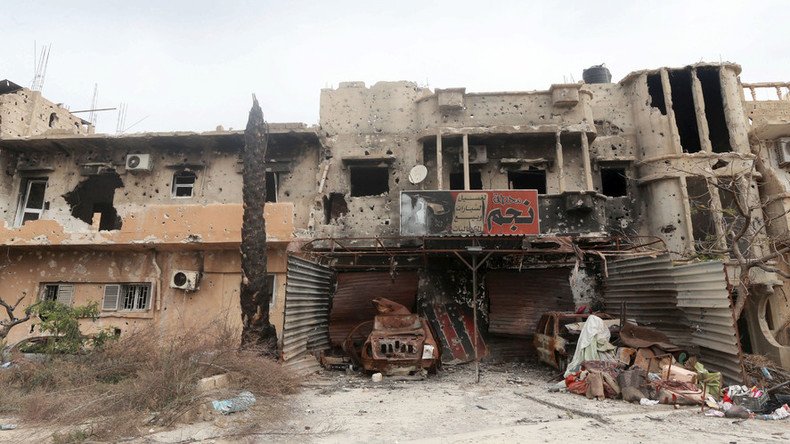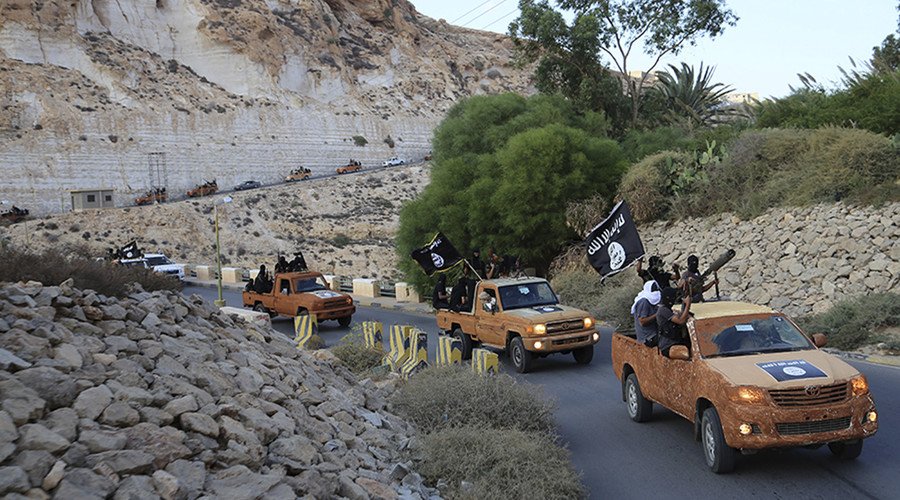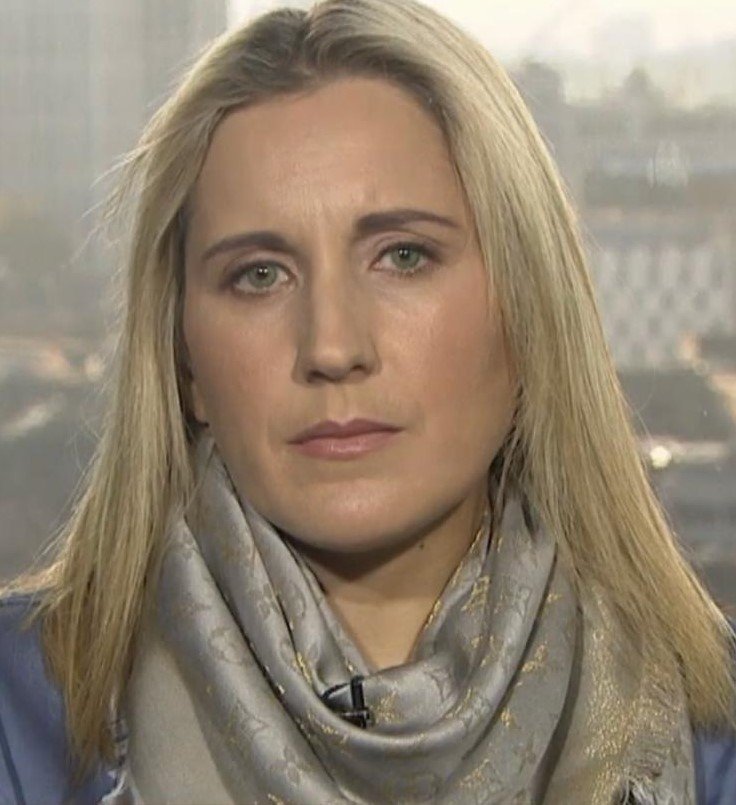The Libyan front: How terror could soon metastasize in Africa

The forgotten child of Western interventionism, Libya continues to battle its demons: terror, instability, mass migration, which NATO ever-so willingly unleashed onto the war-torn nation under the convenient label of “humanitarian interventionism.”
If Libya stands today free of Colonel Muammar Gaddafi’s regime, and the violent nepotism his rule asserted as the predominant socio-political matrix, the North African nation is not exactly home free either. And while there is no denying that Gaddafi had to go … if anything, because his people wished it so, Western interventionism literally exploded Libya’s chance at a unified transition of power.
Should Libya been allowed to handle its own affairs, should Libyans been allowed to practice their free political will, it is likely the country would not have fallen prey to terror – it is likely war would not have broken out between tribal factions, and it is likely radical militants would never have had the opportunity to open a new front of terror in Africa – right at Europe’s doorstep.
In true neocon fashion, NATO preferred to destroy first, bomb now, and then blame someone else later…in most cases - Russia. Funny though how strikingly different Western interventionism has been from Russia’s careful, and lawful collaboration with its foreign partners: i.e. Syria. Wherever Western powers have dropped bombs, chaos, death and more radicalism have ensued – whenever Russia has stepped in however radicals have retreated, and IDPs returned home.
Are you still under the impression that Western capitals know best? Clearly they don’t. Clearly their agenda lies not in the promotion of stability, but rather absolute chaos. Because it would be foolish to think that their actions are only the products of stupid politicking.
Let us remember that chaos has been good for business. Chaos has allowed Western governments to cultivate a new form of neo-colonial co-dependence, where the master needs his subject, just as much as the subject needs his master to survive. While most industries in the Western hemisphere have suffered from the effects of global recession, there is one sector which has thrived above all: the defense industry. Now tell me that from a purely capitalistic standpoint wars are not needed.
Libya, like so many other countries in the Greater Middle East - Syria, Iraq, Afghanistan, and Yemen - has been framed within a narrative of righteous interventionism.
Back in 2011, the UN Security Council legitimized NATO’s calls for military action with a resolution which argued that in view of Gaddafi’s “crimes against humanity” the world had a responsibility of care. It is such a stance which eventually permitted NATO to unleash its military forces against the Gaddafi regime.

If NATO’s Libyan campaign was then hailed a success, since it allowed for Gaddafi’s demise, it also opened up Libya to the likes of al-Qaeda, and ISIS - de facto fracturing an otherwise relatively united nation. Since its liberation, Libya has reverted to its pre-colonial set up – back when tribes were still looking to assert their competing authorities over one another, thus making territorial unity but a mirage in the distance.
Abdelkader Abderrahmane, an independent geopolitical researcher and analyst on African security recently noted in an interview: “Gaddafi is gone, as are the foreign fighter planes, but Libya is far from stable. There are two rival governments – one in Tobruk and one in Tripoli – and the so-called Islamic State (IS, formerly ISIS/ISIL) has been making major gains in the embattled and now chaotic country. Foreign powers have been expressing concern about the group’s expansion in the oil-rich state, and although US Secretary of State John Kerry has ruled out another military intervention, there are signs that such action may be on the cards. Some Libyans, forced to flee ISIL or live under its rule, are themselves beginning to discuss intervention as the only way forward.”
Although NATO has long argued that if not for its intervention Libya would have suffered many great crimes, somewhat trying to rationalize a second coming of sort, logic would caution against it. It was Albert Einstein I believe who defined insanity as doing the same actions again, and again while expecting a different result.
I think we already establish how the militarization of the Greater Middle East has only EVER resulted in the rise of more instability, and more radicalism - playing directly into the hands of terror’s masterminds, especially since Western powers have gone about it with no real vision. You can’t pulverize a country into stability.
As pointed out by Abderrahmane: “A new intervention would have dramatic consequences for Africa, already suffering under the weight of Islamist radicalization.”
The spread of terror to Africa is only half the problem. With war and the inevitable bombing campaigns the West is so fond of more people will attempt to resettle elsewhere. And since there are only so many ways they can actually go, Europe will most likely be the destination of choice. And then what?
The fear today is that ISIS could metastasize across Africa, now that it has gained a foothold into Libya
According to the Shafaqna Institute for Middle Eastern Studies, an estimated 25,000 to 30,000 foreign fighters could have already swollen ISIS ranks, with about 7,000 fighters in Libya itself - a number which could very well double, should NATO return to the offensive, playing into the group’s argument that Western powers seek to colonize the African continent once more.
With access to billions of dollars through the black terror trade, ISIS has the finances and the manpower to take a firm hold in Africa. Rather than help solve Libya’s instability conundrum, a second military intervention is likely to send ISIS into a dangerous flight that will resonate in the rest of the continent, as radicals will go underground, breaking themselves up into sleeper cells across the Sahel and further south.
If ISIS has relied on its foreign fighters to expand its reach, the group’s ability to recruit locals should not be underestimated.
In January, Algeria arrested some 300 Moroccans attempting to cross into Libya.
How many times will we have to repeat the same mistakes before we realize that brutal force is not a solution in itself, and that wars are not conduits for democracy building? One would think that Syria would have taught Western governments a thing or two … especially in the light of Russia’s victory against terror.
THAT no one wants to talk about of course.
The statements, views and opinions expressed in this column are solely those of the author and do not necessarily represent those of RT.












